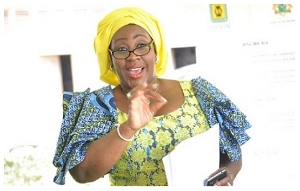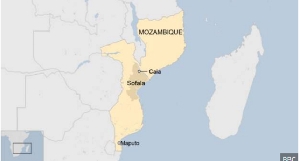- Home - News
- TWI News | TV
- Polls
- Year In Review
- News Archive
- Crime & Punishment
- Politics
- Regional
- Editorial
- Health
- Ghanaians Abroad
- Tabloid
- Africa
- Religion
- Election 2020
- Coronavirus
- News Videos | TV
- Photo Archives
- News Headlines
- Press Release
Opinions of Thursday, 17 October 2013
Columnist: Ata, Kofi
Could GYEEDA be President Mahama’s Waterloo?
By Kofi Ata, Cambridge, UK
A lot has been said and written about the level of corruption that was unearthed by the Committee set up to investigate the activities of the Ghana Youth Employment and Entrepreneurial Development Agency, commonly known as GYEEDA for short. Though I have not read the entire report, some sections of the report are mind bogging. In this brief article I want to discuss some of the findings and my analysis and interpretations.
Without going into specific details, I struggle to find appropriate word or words that could truly capture or reflect what happened within GYEEDA in terms of its operations, award of contracts and the wanton dissipation of scarce state resources. To describe them as disorder, chaos, anarchy, free for all, confusion, etc is an understatement. The total disregard to any form of laid down organisational policy, principles, procedures and monitoring or corporate accountability made me wonder if GYEEDA is perhaps, the tip of the iceberg. I say this because of what is revealed at the Judgement Debt Commission’s hearings, which suggest that state institutions and agencies in Ghana have lost control of its leadership and management oversight, particularly, in the area of application of state resources.
An illustration of what I mean would be helpful. For example, contracts and services were awarded and procured without due regard to proper procedures or in line with Ghana’s Procurement Act. What is baffling and disturbing were the fact that those awarded contracts by GYEEDA and were to deliver services to or on behalf of GYEEDA were not only paid full and in advance but were also given huge sums of interest free loans by GYEEDA for their operations. In all these endeavours, whether it was award of contracts, procurement of services or the granting of interest free loans, there were no safeguards whatsoever to reduce risk to the GYEEDA and protect the interests of the state.
The above example could be explained in many ways. First, it’s either the leadership and management of GYEEDA had no clue when it comes to contract management or they simply did not care about how state resources could be judiciously applied. Second, GYEEDA management and staff had no sense of value for money but if they did, then, they ignored what value for money entailed. Third, they had either never heard of the term “risk averse”, risk management or were risk prone and fourth, it also appears that those responsible were either incompetent or lacked entrepreneurial, commercial or financial acumen or all. Yet, they are responsible for the development of entrepreneurial skills and culture among Ghanaian youth What a mismatch?
I believe the multitude of questions that many Ghanaians would want to ask and find answers to, include, why the leadership, management and staff of GYEEDA acted they way they did. Many will simply conclude that their actions and omissions were pure greed and corruption. Such conclusions are true but there is another theory to this “eating of the meat to the bone” or the “create, loot and share enterprise”.
The GYEEDA report could be best analysed in the context of the political environment at the time in Ghana in order to correctly interpret the rush and carelessness with which all those concerned acted in unison to allocate and plunder scarce state resources within a very short span of time and at a time when many critical areas of the economy were starved of resources.
2011 and 2012 were election years in Ghana particularly 2012. General election years are the period that governments in power use or misuse state resources to gain favour from the electorates. During this period, spending decisions are not based on prudent economic policies but often, purely on securing political advantage over its opponents with the sole objective of victory in the pending elections. During this period, politicians and their appointees, through the politics of patronage do not only consider their continued hold on political power and the control of the Executive, but they also become the proverbial ant who in the rainy days prepare to store some of the bounty harvest for the lean season. In other words, their actions and omission are dictated and guided by not only remaining in office but also preparing for the possibilities of entering the wilderness in opposition.
The rush and carelessness that embodied the decisions of GYEEDA leadership, management and staff were such that, in addition to the naked waste and corruption, these were manifestation of people who were preparing themselves for a future life in opposition. Their actions and omissions were indications of a group that were not confident that their government, appointing authorities and pay masters would win the then forthcoming coming presidential election. To secure their continued future existence in comfort at the expense of the tax payer, they had to stash some resources in shaky contracts and deals that they could easily have access to when in opposition. These were to be achieved through juicy appointments with the organisations that they had awarded dubious contracts and given huge sums of interest free loans. This is how I analysed and explained the GYEEDA report.
There is another theory held by others including the main opposition party, NPP. That is, GYEEDA was in fact, a conduit for siphoning state resources to fund President Mahama and NDC’s 2012 elections campaigns. This theory is not far from the truth, even if, it was done indirectly as I explained above that during election years governments’ spending decisions are more less, based on gaining political advantage over opponents and securing favours from the electorates. Mr Ayikoi-Otoo described it as NDC bribing Ghanaians.
President Mahama keeps on shouting at the top of his voice that he wants to fight corruption within his government or in Ghana. It has been reported that some officials indentified in the GYEEDA report have been invited and interviewed by either CID or EOCO or both and granted bail. The same President had earlier informed Ghanaians that the GYEEDA report had been referred to the Attorney General for study and potential prosecution of those indicted. I am now confused by such inconsistency in the President’s message. The President’s clarion call on Ghanaians to join him in fighting corruption will come to naught if he is not seen to be walking the talk. Unless those responsible for the GYEEDA corruption are held accountable for their stewardship, the President’s call will be treated with contempt that it deserves.
That brings into fore the question of who and who must be held accountable? That is, can ministers and heads of departments who were charged with the oversight responsibility for GYEEDA be free from the sword of accountability? Can President Mahama sincerely fight the canker of corruption in his government that GYEEDA has come to symbolise without holding at least, the then ministers for Youth and Finance responsible and accountable for their failures to exercise effective control over how GYEEDA dispensed resources allocated to it? Can he honestly address the past rot in GYEEDA without holding some of the big fishes within his government accountable and responsible for GYEEDA? The GYEEDA corruption is just too close to government for comfort. In other words, not only the small fishes could be hauled to the court of accountability in the fight against government corruption.
GYEEDA may not be President Mahama’s Waterloo yet but he should remember that, GYEEDA reminds many Ghanaians of the level of corruption within his government. How he deals with it could determine whether it becomes his Waterloo in 2016. He should also remember that the battle of Waterloo was fought because Napoleon Bonaparte took advantage of the unpopularity of Louis XVII from the harsh economic and social conditions in France at the time to return to power from exile. The effectiveness and success of his socio-economic policies to address the harsh economic and social hardships facing Ghanaians would be dependent to a large extent by how capable and willing his government is able to fight corruption from within and outside. GYEEDA will be a litmus test and perhaps his Waterloo, the defeat of Napoleon at a battle fought in the city of Waterloo in far away Belgium. The electorates are watching.
Kofi Ata, Cambridge, UK










